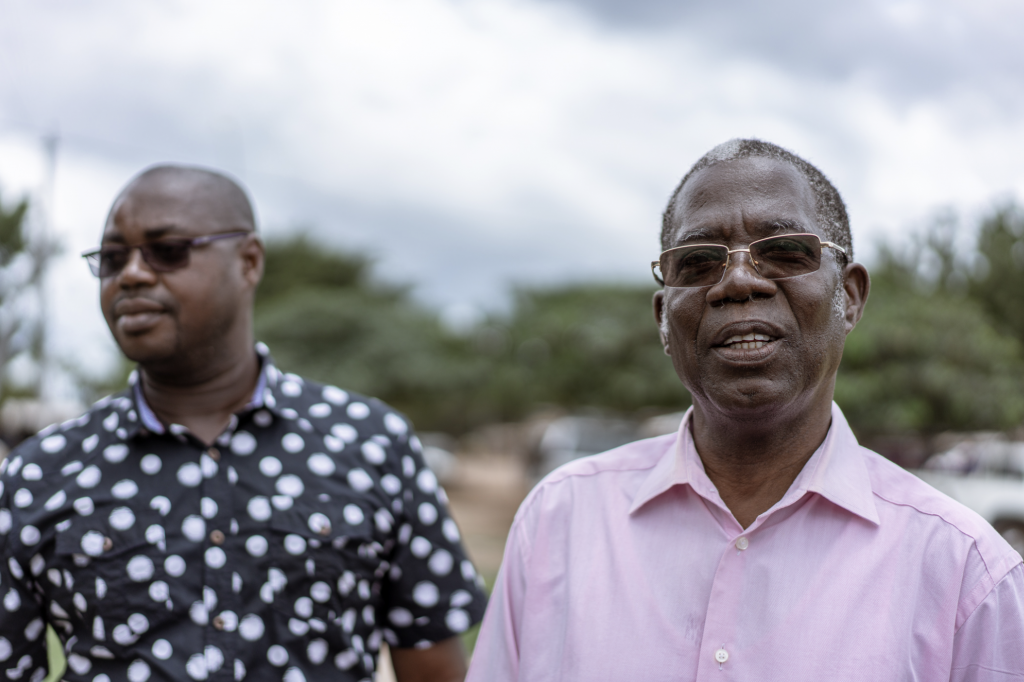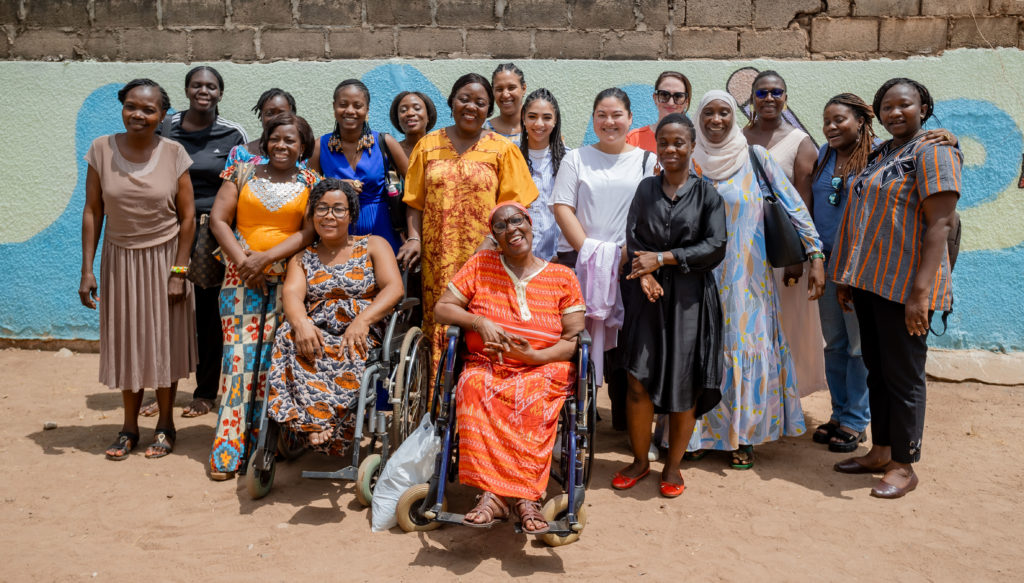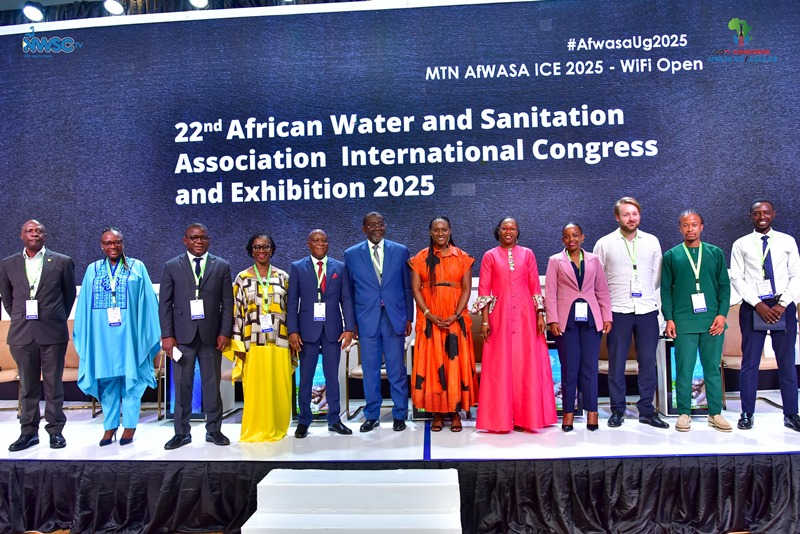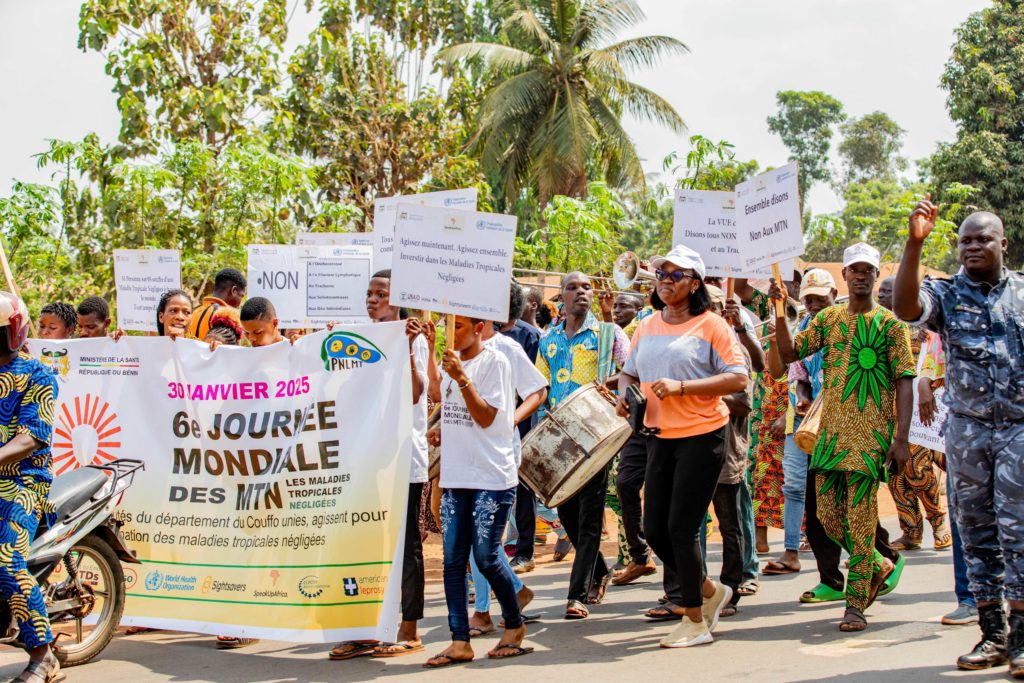Deputy Mayor of Yamoussoukro tours local sanitation facilities

Last week, representatives from Yamoussoukro (Côte d’lvoire) joined media representatives to tour the capital’s sanitation facilities and discuss solutions to local sanitation challenges.
Mr. Konan Yaoura, Second Deputy Mayor of Yamoussoukro, was joined by Dr Seydina Ousmane Sène, principal economist and programme director for l’Initiative Prospective Agricole Rurale (IPAR), representatives from PSI and 13 local journalists for the tour.
Organised by advocacy tank Speak Up Africa, the one-day visit aimed to enhance local media’s knowledge of on-site sanitation issues and present Yamoussoukro’s domestic financing strategy for sanitation.
Throughout the day, delegates visited latrines built by PSI, where they discussed sanitation solutions with members of the local community, before meeting with a local disposal site’s manager. In 2018 PSI launched in collaboration with the municipality of Yamoussoukro the Yamoussoukro’s Sanitation Service Delivery (SSD). The SSD project uses a market-based approach to increase access to sanitation. This includes identifying and helping private sector actors to produce prefabricated latrines and install them in households. Through hands-on training, the provision of equipment and start-up equipment, as well as commercial and marketing support, the project develops with the private sector a range of cost-effective and sustainable services to provide toilets to low-income households living in urban areas.
In Yamoussoukro PSI has built more than 610 toilets. Journalists and key actors during the visit had the opportunity to discuss with beneficiaries in order to inquire about the impact of these works in improving their living conditions.
During the visit, the municipality also launched the innovative approach known as Leader-Led Total Sanitation (LTTS). LLTS is an approach which encourages community leaders to commit to helping the general public find local solutions to their own sanitation problems.
In Côte d’Ivoire, as in most developing countries, access to adequate sanitation remains a challenge. The city of Yamoussoukro has an estimated population of 300,000, at least 5% of whom are living without a latrine, resulting in public defecation. The National Statistics Institute’s (INS) most recent census found that 80% of households in Côte d’Ivoire use manual treatment for sewage, while 62% do not have acceptable facilities, creating a critical public health problem.
Mr. Konan Yaoura, Second Deputy Mayor of Yamoussoukro, said: “Today, one in three people still live without adequate sanitation facilities, with this number rising to 75% in West Africa. The reality is however that improved sanitation is a necessary and vital service for the welfare of citizens and municipalities must take control of the sanitation agenda. It is crucial that the media keep reporting on the issue of sanitation, and site visits like the one in Yamoussoukro this week are key to educating journalists on the sanitation challenges and initiatives like LLTS.”
Yacine Djibo, Founder & Executive Director, Speak Up Africa said: “We were delighted to work with journalists, members of local government and regional institutions in Yamoussoukro to highlight some of the sanitation challenges currently facing Côte d’Ivoire. Local authorities have taken an increasingly important role in the development and implementation of public policies, particularly when it comes to sanitation, and we hope the tour of Yamoussoukro has highlighted the steps needed to improve sanitation in the region.”
This visit marks an integral part of Speak Up Africa’s campaigning and advocacy efforts to improve access to safely managed sanitation services and clean water across west Africa. Close collaboration between local leaders and the national and regional institutions responsible for developing and implementing sanitation programs is critical to the advancement of sanitation facilities in the region.
This month, an alliance of organisations working across the WASH (Water, Sanitation and Hygiene) sector in Africa, launched a new media fellowship award, designed to support journalists to report on the most pressing sanitation issues in Africa. The Sanitation Media Fellowship is open to all journalists working across the continent and demonstrates the commitment of civil society to educate journalists on the sanitation challenges and opportunities in Africa, to drive considerable change.


